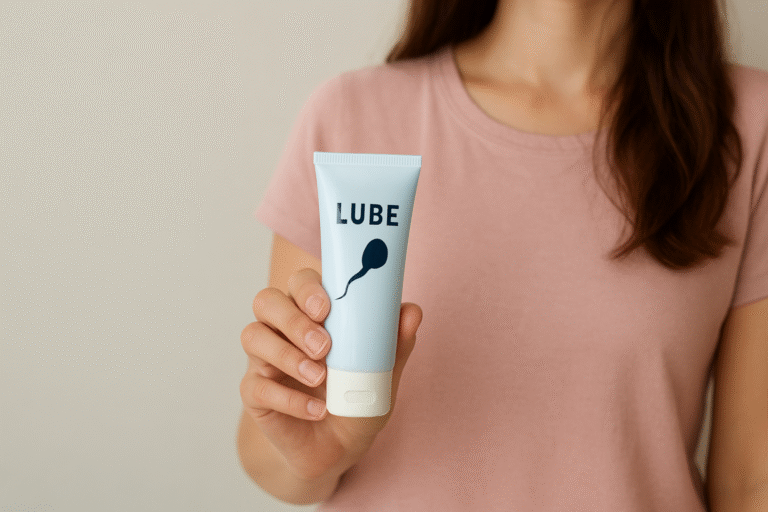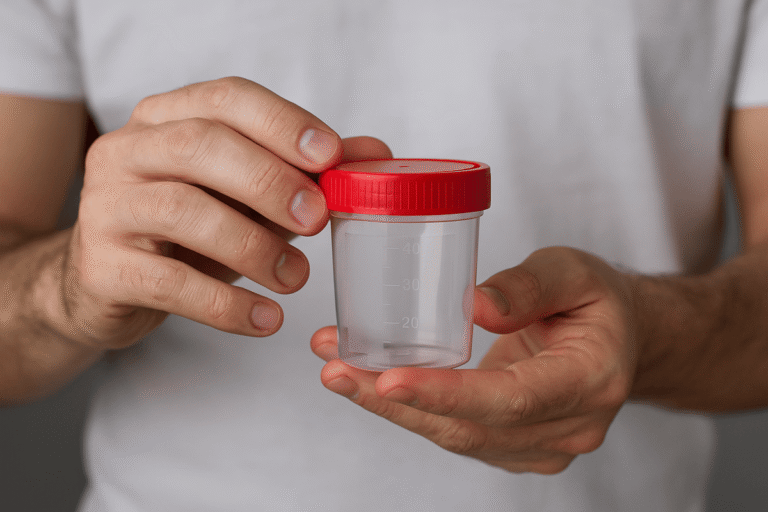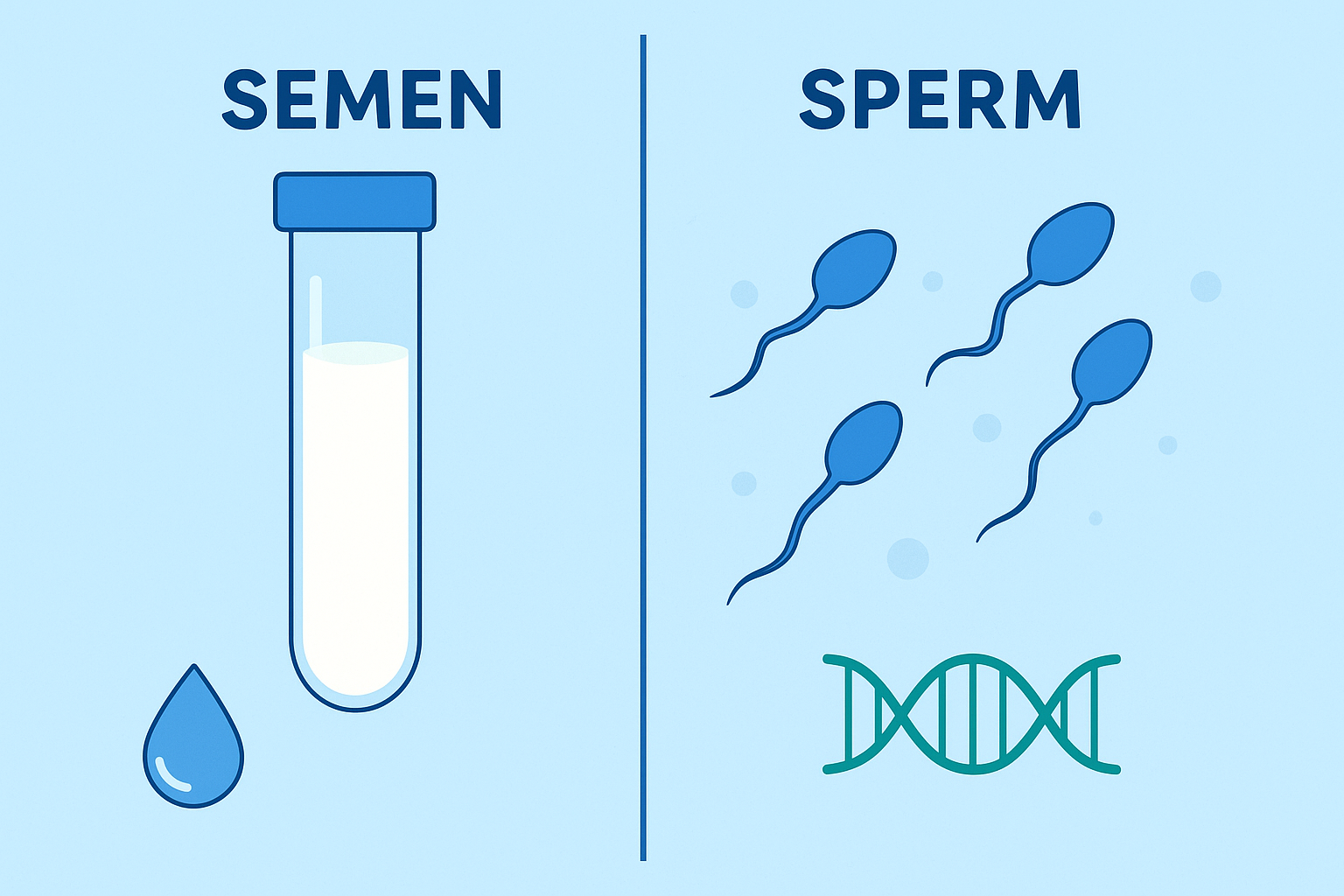It’s late at night, and you’re tossing and turning. Maybe your period is a few days late. Or maybe you’re just… feeling off. So you go digging through your bathroom drawer, past the half-used nail polish remover and a dusty box of bandages, and you spot it — an old pregnancy test.
But a thought hits you: Can I even trust this thing?
Whether it’s been sitting there for months or years, you’re not alone in wondering, “Do pregnancy tests expire?” The short answer is yes , they do. And using an expired one could mean the difference between a correct result and a false sense of certainty.
Let’s dig into why pregnancy tests have expiration dates, how they work, and why it’s probably time to toss that test from 2020.
Also read: Stages of Menopause Explained: Your Complete Guide
How Pregnancy Tests Work (And Why They Expire)
Before we get into expiration dates, let’s take a quick look at how home pregnancy tests actually work.
When you become pregnant, your body begins producing a hormone called hCG (human chorionic gonadotropin). This hormone shows up in your urine, usually about 10 days after conception, and continues to rise rapidly during early pregnancy.
Home pregnancy tests are designed to detect hCG through specialized antibodies. These antibodies are coated on test strips, and when they bind with hCG in your urine, they trigger a visible reaction — usually a line, a plus sign, or in the case of digital tests, words like “Pregnant” or “Not Pregnant.”
Now here’s the catch: those antibodies don’t last forever.
Just like milk or makeup, they degrade over time. And when they do, they can’t bind as efficiently to hCG, which affects the test’s ability to give you an accurate result. That’s why pregnancy tests come with clearly marked expiration dates, usually printed on both the box and the individual test wrapper.
How Long Do Pregnancy Tests Stay Good?
Most pregnancy tests are good for about one to three years from the date of manufacture — but it’s not a one-size-fits-all answer. The specific shelf life depends on the brand, how it’s been stored, and the type of test.
For example:
- Clearblue and First Response pregnancy tests often have an expiration range of 2–3 years.
- Store-brand or generic versions might have shorter windows, like 18–24 months.
Here’s a pro tip: don’t just look at the box. Always check the individual foil wrapper before using a test. And if you’ve removed a test from its wrapper weeks ago thinking you’d use it soon — but didn’t — it’s best to discard it.
Storage matters, too.
A test that’s been left in a hot car or stored in a steamy bathroom may degrade faster. Moisture, heat, and sunlight can all mess with the sensitive components that make the test work properly.
So if you’re going to keep one around just in case, store it in a cool, dry place — think drawer, not windowsill.
Also read: Hot Flashes After Menopause: The Shocking Truth No One Shares
What Happens If You Use an Expired Pregnancy Test?
Let’s say you’re in a pinch. It’s 11 PM, the drugstore is closed, and all you have is that test that expired last spring. Should you use it?
Technically, you can — but don’t rely on the result.
The most common issue with expired tests? False negatives.
That means the test might tell you that you’re not pregnant when you actually are. Since the test strip’s antibodies may no longer detect hCG accurately, the result isn’t reliable.
This can be dangerous. A false negative could delay important next steps like:
- Starting prenatal vitamins
- Avoiding alcohol or medications harmful during pregnancy
- Scheduling your first prenatal visit
In rarer cases, expired tests can produce false positives, too. This happens when degraded chemicals trigger a color change even in the absence of hCG. It’s confusing, stressful, and potentially misleading.
In short: expired tests aren’t just “less accurate” — they can be flat-out wrong.
Do Digital Pregnancy Tests Expire?
Yes, absolutely.
Even though digital tests display the result as clear text on a screen (“Pregnant” or “Not Pregnant”), they work just like traditional tests. Inside, there’s still a test strip using those same hCG-binding antibodies. The only difference is that a digital sensor reads the results instead of your eyes.
Digital tests often have shorter shelf lives than basic strip tests. Plus, they contain batteries, which can also degrade over time. That makes it even more important to check both the expiration date and storage condition before using one.
Also read: Anti-Müllerian Hormone Levels: What You Need to Know
Can an Expired Pregnancy Test Ever Give the Right Result?
Sometimes, yes. But “sometimes” isn’t good enough when it comes to something as important as a potential pregnancy.
Using an expired test is like playing hormonal roulette. You might get lucky — or you might get a completely inaccurate result that affects your health, your decisions, or your peace of mind.
That’s why doctors and manufacturers strongly advise against using expired tests, no matter how tempting it might be in the moment.
Real-Life Scenarios: When Expiration Dates Matter
Here’s the reality — most of us don’t think about test expiration dates until the moment we’re already stressed or anxious.
But those few extra seconds to check the date can make all the difference.
Scenario 1: The Unexpected Positive
You used a test that expired last year. It says “Pregnant.” But now you’re wondering: Is it real? Should I trust it?
In this case, you’ll need to take a new, in-date test as soon as possible and follow up with your doctor.
Scenario 2: The False Comfort
You took a test from your cabinet. It says “Not Pregnant.” But your period is still late, and you feel nauseous. Turns out the test expired six months ago. That false negative could delay essential prenatal care.
Tips for Keeping Pregnancy Tests Reliable
Here’s how to ensure you’re getting the most accurate result when you need it most:
✅ Always check the expiration date
Before buying and before using. Don’t assume it’s fresh just because it’s on the store shelf.
✅ Store tests properly
Keep them in a cool, dry place away from direct heat and humidity. Avoid bathrooms or cars.
✅ Keep the wrapper sealed
Once the foil is removed, use the test immediately. Exposure to air and light degrades test sensitivity.
✅ Don’t hoard
Buying a bunch of pregnancy tests “just in case” can backfire if they all expire before you need them. Keep one or two on hand and replenish as needed.
✅ Follow instructions carefully
Even a perfectly good test can give inaccurate results if it’s not used correctly. Read the insert!
Final Thoughts: Out with the Old, In with the Accurate
In the world of home pregnancy testing, accuracy is everything. And while it’s tempting to rely on what’s already in your bathroom drawer, an expired test just isn’t worth the risk.
So the next time you’re reorganizing your cabinet, do a quick check. Toss anything past its expiration date and replace it with a fresh, reliable test. Because when it comes to your health, peace of mind, and future planning — certainty matters.
Remember, that little line or screen message is more than a result. It could be the start of something life-changing. Make sure it’s the real deal.




